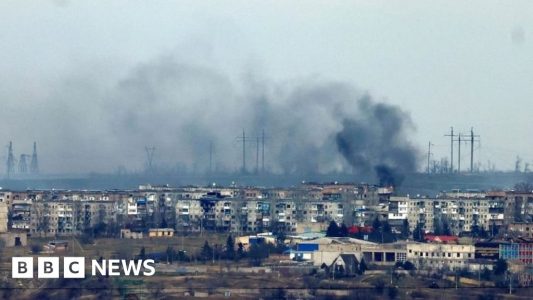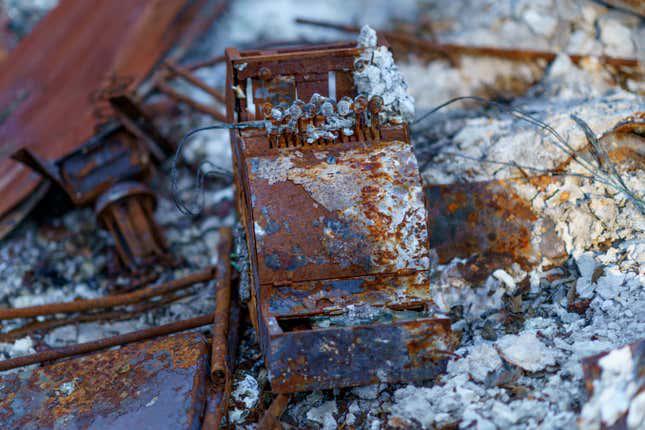Putin removes top Ukraine commander Surovikin - Dispatch Weekly
January 12, 2023 - Reading time: 4 minutes

Three months after his appointment as Russia’s senior commander in Ukraine Sergei Surovikin has been replaced by President Putin.
Valery Gerasimov, the chief of the general staff, will now oversee what Mr. Putin still refers to as a “special military operation.”
Surovikin, who oversaw recent violent assaults on Ukraine’s energy infrastructure, will be replaced by Gen. Gerasimov.
Following a string of military setbacks in recent months, Russia claims to be making gains in eastern Ukraine as a result of the reorganisation.
On 24 February last year Russia began its invasion of Ukraine.
The longest-serving Russian head of general staff in the post-Soviet era is Gen. Gerasimov, who has held the position since 2012.
Because of his merciless strategies in previous conflicts, particularly Russia’s activities in Syria and the intense bombardment of the city of Aleppo in particular, Gen Surovikin has been dubbed “General Armageddon.”
He took over the operation just as Russia launched a drive to demolish Ukraine’s energy infrastructure, depriving millions of citizens of power and running water for protracted periods during the dead of winter. Additionally, he handled Russia’s withdrawal from the Ukrainian city of Kherson in the country’s south, which was a huge victory for Ukraine.
In order to facilitate “greater contact between different branches of the armed forces and improve the quality and effectiveness of the management of Russian troops,” according to the Russian defence ministry, Gen Surovikin is to be replaced.
However, others have interpreted the action as an indication that he may have amassed excessive power.
When speaking to Putin, Surovikin was likely circumventing Gerasimov and [Sergei] Shoigu, the Russian defence minister, according to military analyst Rob Lee on Twitter.
Some hawkish military bloggers in Russia have been quite critical of the country’s military leadership, especially Gen. Gerasimov, the new commander of the special military operation. These bloggers support the war but frequently criticise how it is being conducted.
The declaration on Wednesday comes while combat in Soledar continues.
By giving them a safe artillery position within range of the city, the fall of Soledar may aid Russian troops in their assault on the important city of Bakhmut, which is located approximately 10 kilometres (six miles) to the south-west.
Deep salt mines in Soledar are also available for storing equipment and housing troops in a missile-safe area.
For “storming” it, the Russian mercenary Wagner Group has claimed sole ownership.
Yevgeny Prigozhin, the group’s head, declared on Tuesday night that his soldiers had complete control of Soledar. However, a statement from the Russian defence ministry on Wednesday seemed to refute his assertion – or that only Wagner Group forces were involved.
As a result, Mr. Prigozhin repeated the assertion on Wednesday night. He boasted that his mercenaries had killed some 500 pro-Ukraine soldiers in a brief Telegram message. The remains of Ukrainian servicemen are all around the city, he wrote.
Similar remarks on the number of Russian casualties have recently been made by Ukraine.
Russian military leadership appears to be divided, especially between the Wagner Group and the defence ministry, as indicated by the apparent discrepancies in the official Russian story surrounding the most recent events at Soledar.
Volodymyr Zelensky, the president of Ukraine, refuted claims that Soledar had fallen.
In his nightly address on Wednesday, Mr. Zelensky stated: “The terrorist state and its propagandists are trying to portray that they have made some progress in Soledar but the combat continues.
“Without pausing for a single day, we use every effort to bolster Ukrainian defence. Our capacity is expanding,”

DW Staff
David Lintott is the Editor-in-Chief, leading our team of talented freelance journalists. He specializes in covering culture, sport, and society. Originally from the decaying seaside town of Eastbourne, he attributes his insightful world-weariness to his roots in this unique setting.




